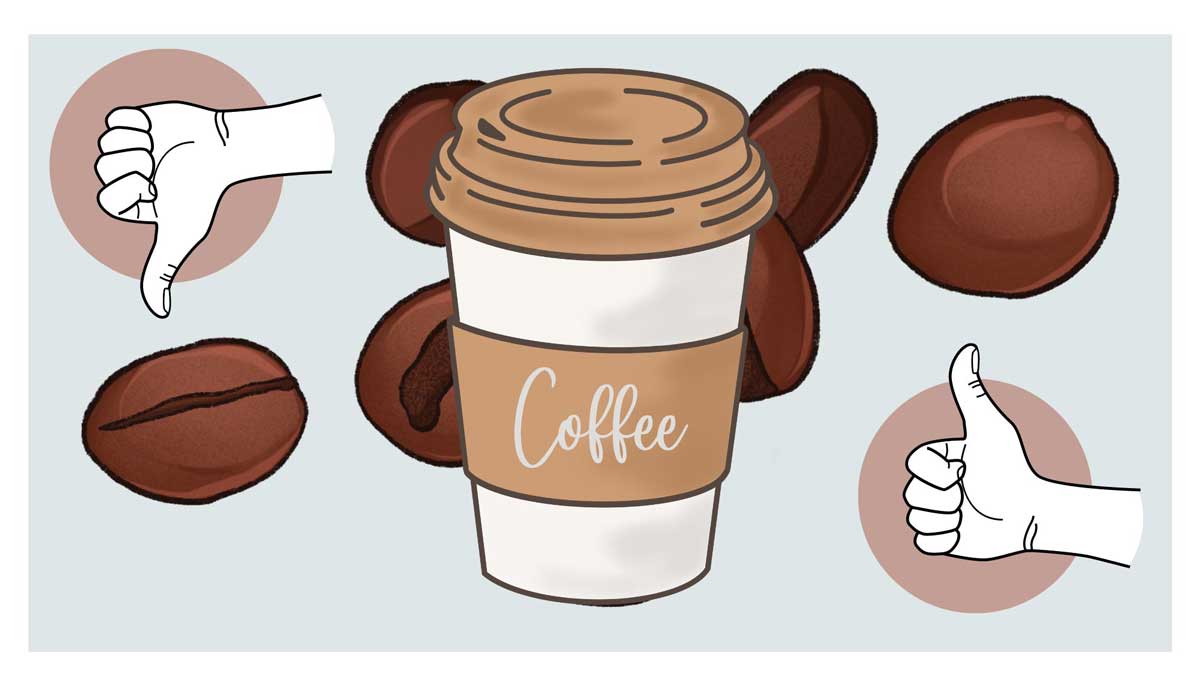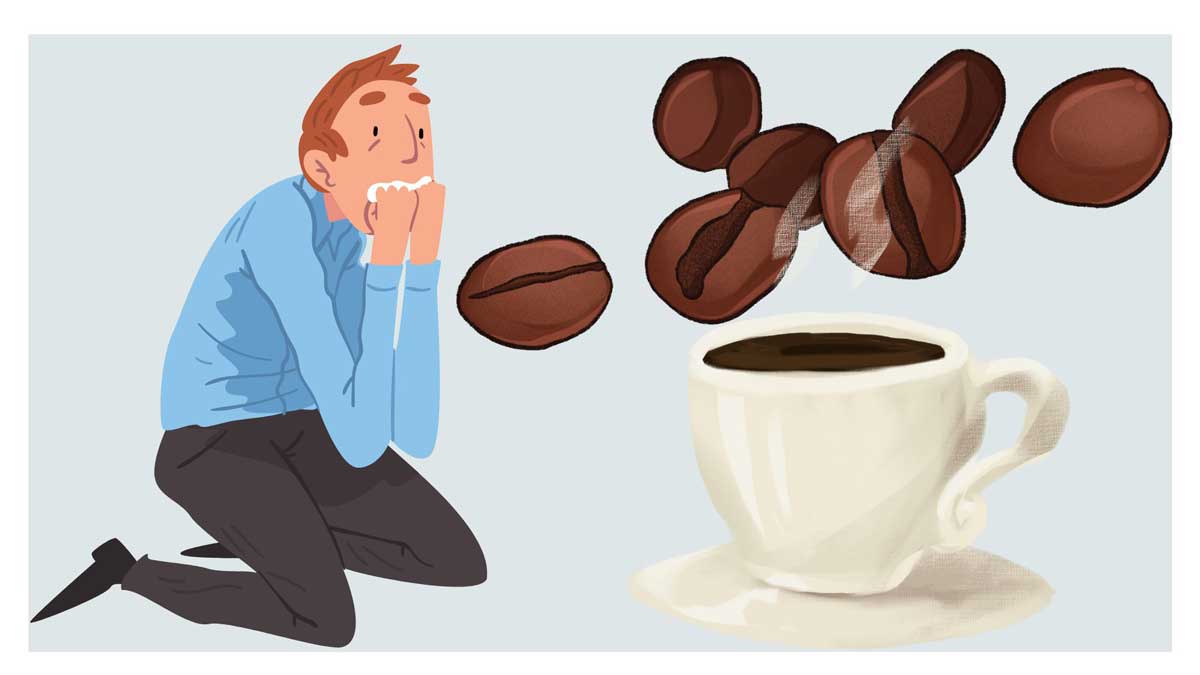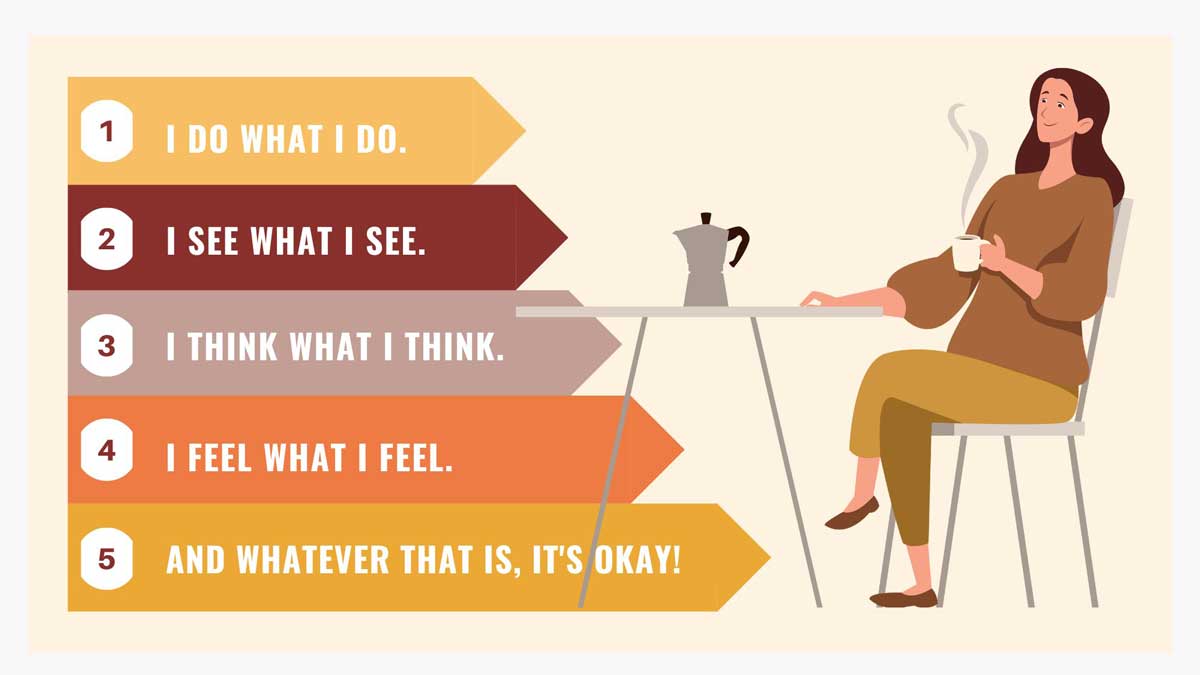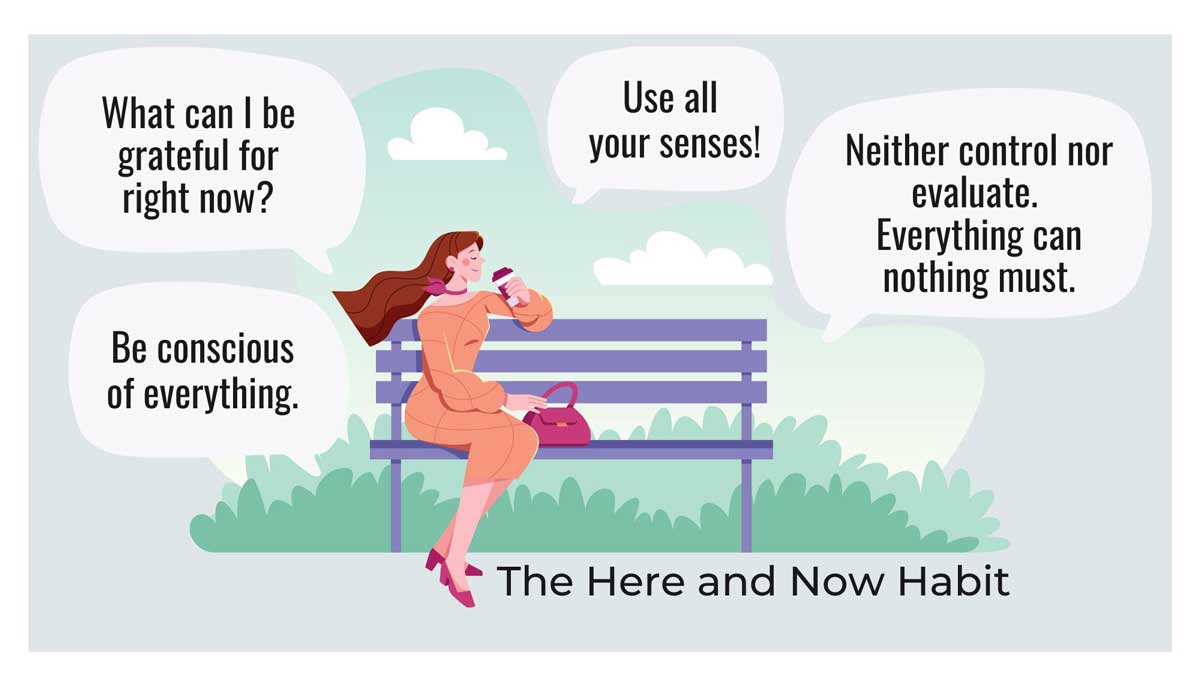
Can Caffeine Cause Anxiety?
Do you feel anxious after drinking coffee or other caffeinated beverages? Or are you worried that caffeine causes anxiety? The answer to this question is not as simple as yes or no. While there is evidence that some people develop increased anxiety with excessive caffeine consumption, it is essential to consider the psychological components that also play a role.
Caffeine and Anxiety: Can Coffee Make You Anxious?
While it is true that caffeine can affect mood, it is rarely the main trigger of anxiety or even panic attacks. Caffeine is a stimulant and can increase alertness and energy levels in those who drink coffee or black tea. However, mental health is essential in how one processes caffeine intake and subsequently reacts to their surroundings. But before we go into more detail about the psyche, first look at the biochemical effects of caffeine. It has been shown to increase adrenaline levels in the body, leading to feelings of alertness and energy. So, thanks to its chemical structure, caffeine provides a morning boost and has been a staple in many people’s lives for centuries. However, you consume too much coffee or caffeinated beverages. In that case, it can also lead to short-term effects such as heart palpitations, restlessness, and irritability. Moderate consumption, on the other hand, lifts mood and improves cognitive performance. We usually find everyday tasks such as driving or studying noticeably easier after consuming coffee or tea. So if caffeine is suitable for most people, why does it seem to trigger anxiety in some, even if they only consume caffeinated beverages in moderation?
Why Does Caffeine Trigger Anxiety in Some People?
Certain people are more prone to anxiety after consuming caffeine. Why is that? And who is particularly susceptible to it? Numerous scientists have also asked this question, so there are already many studies on this topic. So many, in fact, a meta-study1 on the subject could even be compiled in 2022. The uniform result of the studies is: Those who drink away five cups of strong Brazilian coffee and more in a row are more likely to react to it with restlessness and anxious thoughts than those who drink the same amount of water. This is not surprising, given the amount of caffeine involved. Now, what happens when you drink less coffee? After all, only a few people drink five cups of strong coffee in one sitting. You can hardly imagine it, but this thought does not occur to scientists. At least the studies were only ever conducted with extreme amounts of coffee.
By the way, some studies worked with placebo control groups. And anxiety and panic also occurred in some participants in the control groups after five cups of decaffeinated coffee. So it follows: It’s not just what we ingest that determines how we feel, but what we think about it.
It’s not what you drink, it’s what you think!
If you already suffer from anxiety and panic attacks, the stimulating effect of caffeine can intensify these feelings. Therefore, 5 cups of coffee are definitely not recommended! For healthier amounts, those already more prone to anxiety are more likely to perceive and evaluate any situation than those who are entirely unaware. Our reaction to the environment or situation determines how we process caffeine and whether drinking coffee triggers fear and anxiety or more positive feelings.

Is Caffein Bad for You?
Even though you may find it hard to imagine, whether caffeine is bad for you depends mainly on what you think about consuming caffeinated beverages. Because here, too, psychosomatics plays a decisive role. The mere conviction that caffeine could be harmful can lead to heart palpitations just as much as if you had drunk several cups of coffee in a row. A patient of ours once reported that he had been sure for a long time that he would get diarrhea if he drank an espresso on an empty stomach. This conviction disappeared only when the following happened. The man wanted to treat himself to espresso in the morning when the doorbell rang, and the letter carrier brought a long-awaited package. While unpacking it and checking the contents, his intestines spoke up again, and he got diarrhea. When he returned to the kitchen later, however, he found that he had made the espresso but had not drunk a single sip because the package delivery had intervened. So apparently, just thinking of having drunk something containing caffeine was enough for him to cause the same symptoms as actually consuming the drink on an empty stomach.
Getting a grip on your negative thoughts and beliefs about caffeine is therefore crucial. Especially if you actually enjoy drinking coffee or tea and are only abstaining from it because you are afraid of having, for example, a racing heart or a panic attack. If you now think it is difficult, if not impossible, to let go of stuck thoughts and beliefs, there is good news for you. There is the special mental training that can literally reprogram your fear-trained brain. With this, thousands of anxiety patients have now succeeded in getting rid of their misgivings about caffeine and in completely overcoming protracted anxiety disorders. And all this without any medication or lengthy psychotherapeutic treatments. Suppose you want to learn more about this special mental training, which you can now even learn via an online course. In that case, you can find all the necessary information via this link.
Caffeine and Stress in Healthy Balance
Suppose you want to lower your stress levels and still maintain your energy. In that case, finding the right balance when it comes to coffee consumption can sometimes be challenging.
Caffeine can be a balm for the soul, and sometimes it can also act like an accelerant for stress and increase anxiety. That’s why learning the art of separating stress from caffeine consumption is essential. Stress and caffeine are part of life – but they don’t have to reinforce each other! When we take the time to recognize how both impact our lives, we prevent ourselves from making a cup of anxiety instead of a cup of coffee. To regain complete control, pay attention to what you think about when you make your coffee and how that affects how you feel about stress when you drink coffee.
It is essential to take a step back and analyze the effects of caffeine on your own body and lifestyle. However, it is even more critical to honestly question how much stress was triggered by caffeine alone. Could the unpleasant feelings after drinking coffee be triggered by negative thoughts or unfavorable expectations? Once you figure out how exactly you caused your anxiety, you can control it. The better you know what’s good for you – and what’s not – the sooner you can start making changes to live healthier, happier lives.
Caffeine is not the solution to listlessness or lack of sleep, so don’t fall into the trap of thinking it is! But it’s not the root of all evil, either. Instead, focus on getting enough restful sleep each night, eliminating as much stress as possible from your daily routine, and only consuming caffeine when you actually enjoy it. And please keep moderation. 2-3 cups a day are harmless and even promote good health. However, it would be necessary to not drink them one after the other frantically but enjoy them slowly and consciously. Once you start, you can look forward to the magical moment without a guilty conscience when the warmth and comfort of a hot cup of coffee or tea have purely positive effects.
Positive Thinking Patterns Not Only About Coffee
When the coffee has become a daily habit, it’s worth paying attention to what feelings and thoughts it triggers. Whether it affects your mood or mental well-being in any way. An excellent way to change your mindset is to become completely aware of your coffee consumption in the spirit of mindfulness. So even as you’re making your coffee, take it down three gears. Make sure you perform every movement with maximum attention and consciously perceive it with all your senses.
Enjoy Caffeine Mindfully
Just take the speed out for a moment. Then, whatever you do, do it more slowly. Do it more consciously. For example, when you take your favorite cup out of the cupboard, do it calmly and pay close attention to every little thing. Which hand do you use to open the cupboard? How does the handle of the cabinet door feel? What kind of sound does opening and closing the cabinet make? And is the empty cup delicate or of solid stoneware? Is it rather heavy or light? How does the coffee powder smell? Or, if you’re using a machine with capsules or pods, how do they feel? Focus not only on your senses and hands but also your arms, shoulders, and neck. Where is your breath? Pay attention to your whole body as you make your coffee. Notice everything carefully, including any thoughts that wander your mind as you do so. With a bit of practice, you can turn your daily coffee break into a small mindfulness exercise that can increase your sense of well-being and significantly reduce your stress. Mindfulness trainers often work with the following formulations:
I do what I do.
I see what I see.
I think what I think.
I feel what I feel.
And whatever it is, it’s okay!
The particular challenge during such a mindfulness exercise is neither to control nor evaluate or justify. Always observe and perceive! So it is not about right or wrong, but only the here and now.

It’s best to establish your very own coffee ceremony. Then, once the coffee has become a positive experience, feel free to extend this concept to other areas of your life and look for opportunities to transform thought patterns into positive outcomes. It may take some practice, but habits will solidify with dedication and persistence, and inner changes will occur through self-discipline and positive thinking. But more on this in the following section.
Regain Control Over Your Emotions
Have you ever stared at the bottom of your coffee cup and wished it contained something to help you deal with the relentless anxiety and mental blocks preventing you from finally living an entire and satisfying life? Understandably, this doesn’t work, but there is a better way to regain control of your emotions and overcome the challenges of daily life. When taking control of your mental health, true success starts with changing your mindset and knowing how to achieve inner wealth by building powerful habits. You can proactively tackle anything life throws at you when you take charge of how you think and feel – and the results are nothing short of miraculous. So please don’t settle for mediocrity any longer: it’s time to stand up and realize your full potential! The strategy will be too simple for most of you. Still, it is all the more effective: become aware of your thoughts and use them to create a more positive expectation. Or rather, don’t believe everything you think!

Coffee is just one of many tools to help us get through the day. But there’s one thing coffee can’t do: it won’t solve a single problem that has to do with our mental health. For that, we need to be proactive with our mental health and regain control of our emotions. By taking a few minutes each day to observe our thoughts, feelings, and behaviors, we can better understand how we relate to the world around us and create a shift in perspective that leads to lasting success. Positive self-talk and mindfulness exercises are just small steps toward becoming more emotionally intelligent and learning to manage anxiety during difficult times.
Personal Responsibility Instead of Excuses
Try no longer to blame the nervous heart palpitations on the caffeine or the cup of coffee too much. Because at the latest after this blog article, you know it’s not only because of what we drink but also how we think about it? It all starts with understanding the power of expectation. Whether positive or negative, you will experience the thoughts or feelings you expect. So if you think caffeine will make you nervous and anxious, you will feel the same way!
Caffeine alone cannot cause anxiety – rather, it depends on how your thoughts are during it. Consequently, the best slogan is: don’t believe everything you think!
So the next time you notice yourself getting anxious after coffee, ask yourself what was going through your mind beforehand. Then, if you are brave enough, take responsibility for your inner dialogue and life itself. With this attitude, more good things will happen not only to your head!
References:
- Klevebrant L, Frick A: Effects of caffeine on anxiety and panic attacks in patients with panic disorder: A systematic review and meta-analysis. Gen Hosp Psychiatry 2022; 74: 22-31